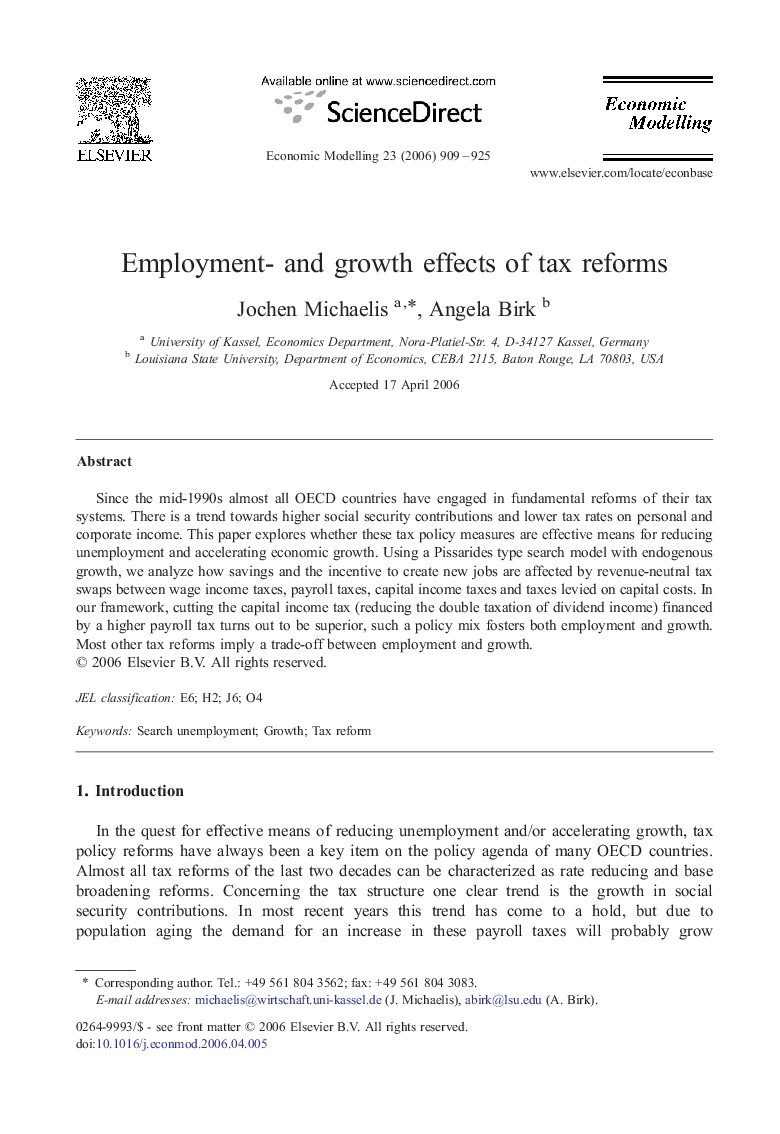| Article ID | Journal | Published Year | Pages | File Type |
|---|---|---|---|---|
| 5056138 | Economic Modelling | 2006 | 17 Pages |
Since the mid-1990s almost all OECD countries have engaged in fundamental reforms of their tax systems. There is a trend towards higher social security contributions and lower tax rates on personal and corporate income. This paper explores whether these tax policy measures are effective means for reducing unemployment and accelerating economic growth. Using a Pissarides type search model with endogenous growth, we analyze how savings and the incentive to create new jobs are affected by revenue-neutral tax swaps between wage income taxes, payroll taxes, capital income taxes and taxes levied on capital costs. In our framework, cutting the capital income tax (reducing the double taxation of dividend income) financed by a higher payroll tax turns out to be superior, such a policy mix fosters both employment and growth. Most other tax reforms imply a trade-off between employment and growth.
